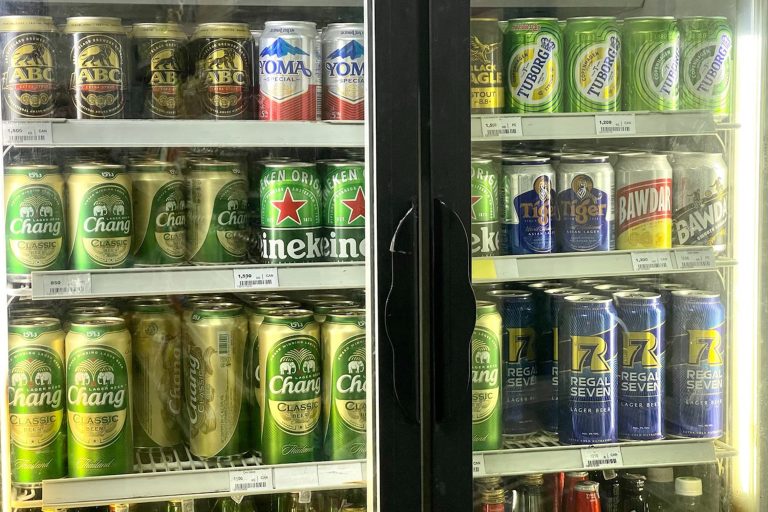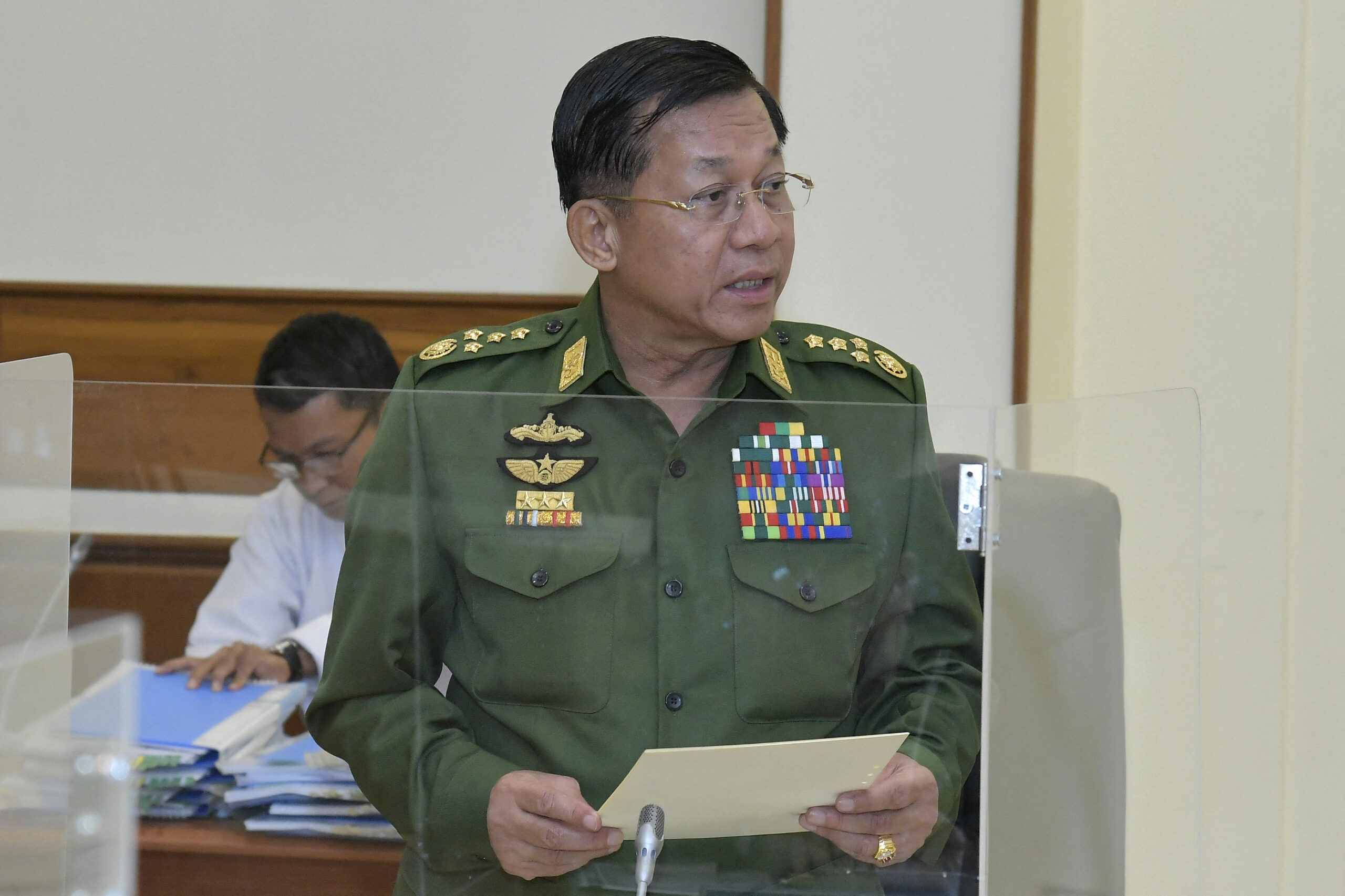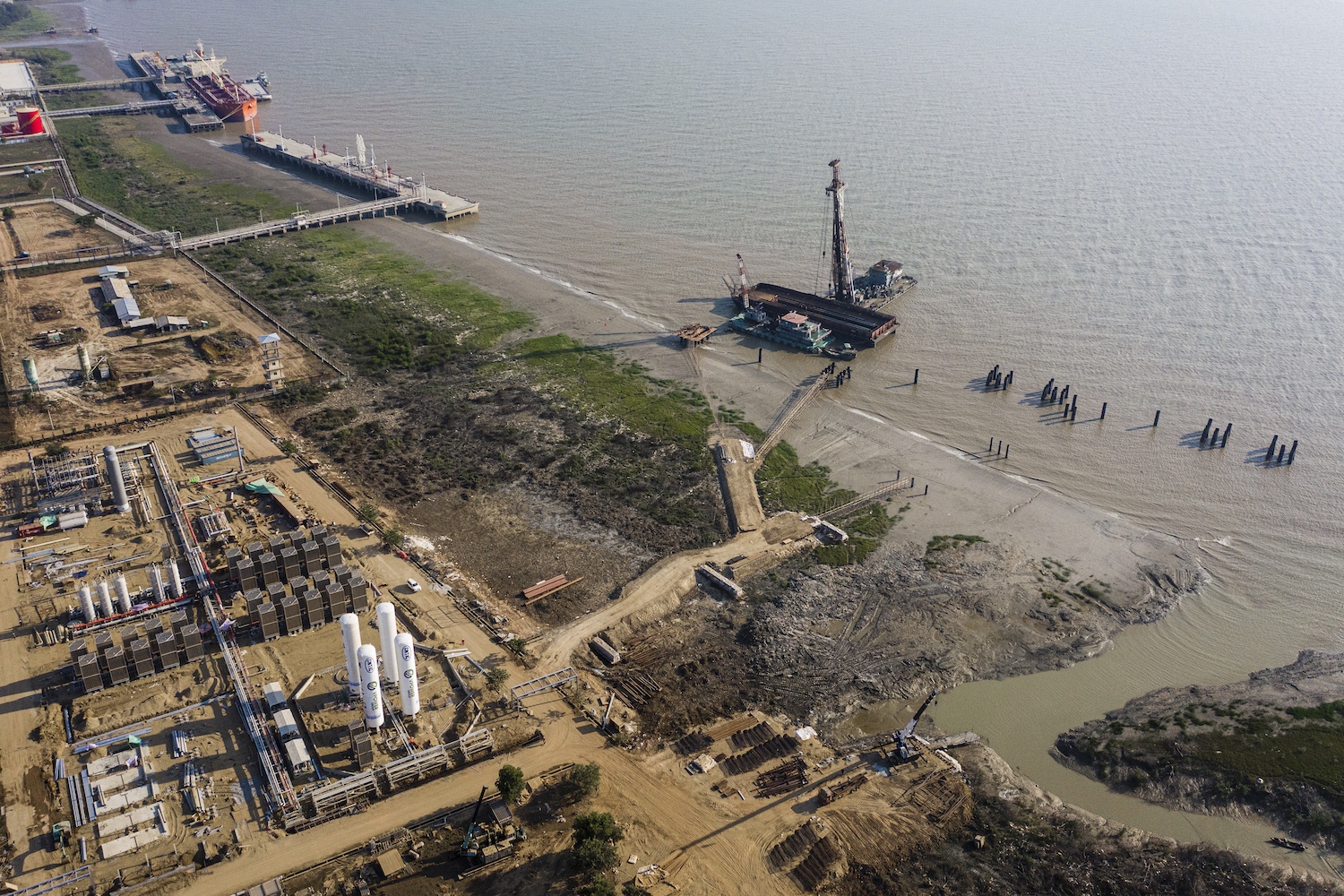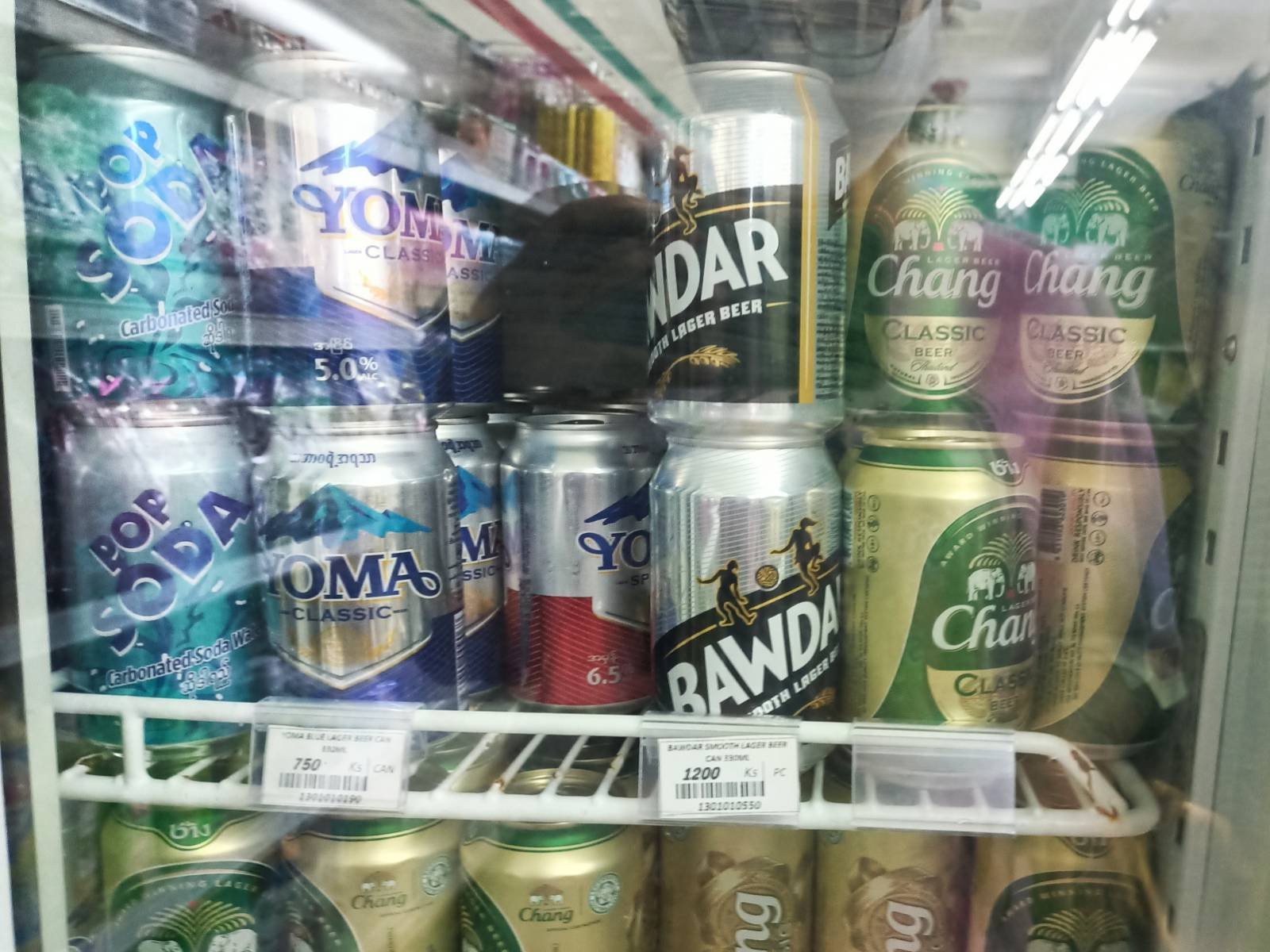Myanmar Brewery’s contractual arrangements with beer stations and restaurants have given it a huge advantage over foreign companies entering the market.
The flurry of foreign companies that entered or returned to the Myanmar market after 2011 included producers of two of the world’s best-known beer brands, Heineken and Carlsberg.
There was an expectation that they would have by now taken a bigger share of a market dominated for more than 20 years by Myanmar Beer, Tiger Beer and ABC, but this has not happened.
I would like to explore why these two internationally famous beer brands are encountering problems with market penetration.
Why does the beer market in Myanmar seem to be unlike any other?
Is there monopolisation in the market and why does it exist?
Support more independent journalism like this. Sign up to be a Frontier member.
In the early 1990s, the military junta that had come after crushing the 1988 popular uprising introduced limited economic liberalisation measures after decades of mismanagement under the Burmese Way to Socialism policies of the Ne Win dictatorship. The liberalisation included an opening of the economy that prohibited imports of 11 commodities, including beer and spirits.
The generals established the military-owned conglomerate, Union of Myanmar Economic Holdings Ltd., in early 1990 and its activities included setting up Myanmar Brewery Ltd., to produce Myanmar Beer and Tiger Beer in cooperation with a Singapore company. An import ban on foreign beer ensured that MBL grabbed the biggest share of the market.
Research firm Euromonitor International says the beers brewed by MBL have a share of more than 90 percent of the domestically-brewed beer market and 64 percent of the overall market, which includes illegal imports.
A survey in 2013 that highlighted the potential for market growth in Myanmar found that it had beer consumption per capita of more than three litres a year, compared to an ASEAN average of 18 litres, and 36 litres in Vietnam.
Carlsberg opened a $75 million brewery at Bago in May to make its international Carlsberg and Tuborg brands, and a Myanmar brand, Yoma beer. The US$60 million Heineken brewery at Hmawbi, about 27 miles (44 kilometres) north of Yangon, began producing the mainstream Regal Seven beer in August and was due to make its flagship Heineken brand by the year’s end.
Carlsberg and Heineken face a distribution challenge because most beer stations and restaurants have exclusive contracts with Myanmar Brewery Ltd., stipulating they sell only Myanmar and Tiger.
Most beer stations and restaurants have five-year contracts with MBL under which they are liable to a penalty of K5 million for violations. Outlets that decide to terminate a contract with MBL cannot sell products made by its competitors for another year.
The fear of copping a K5 million contract penalty is the reason why Carlsberg and Heineken brands are unavailable in most beer stations and restaurants.
It’s the exclusive contracts with retailers that have enabled MBL to monopolise the market for about 20 years.
That’s why if you’re in most of the restaurants and beer outlets throughout the country and you order a Heineken, you’re likely to be told, “Sorry, we only sell Myanmar, Tiger and ABC.”






